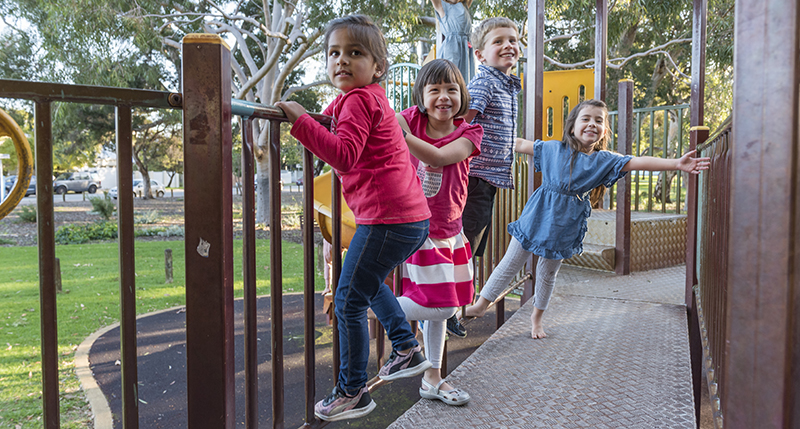Search

News & Events
State Government boost for vital child health researchEight The Kids Research Institute Australia-led projects will benefit from a Western Australian Government boost to health research for the State’s children and young people.
Research
Treatment for Childhood and Adolescent Dissociation: A Systematic ReviewDissociative symptoms are linked to experiences of trauma, often originating in childhood and adolescence. Dissociative disorders are associated with a high burden of illness and a poor quality of life. Despite evidence suggesting that early intervention can improve outcomes, little research exists on the treatment of dissociative disorders in childhood and adolescence.
Research
Improving sport opportunities, participation, and experiences for children in out-of-home care: A mixed-methods studyParticipation in sport is associated with a range of physical, psychological, and social benefits. However, children in out-of-home care face complex barriers to sport participation, with lower participation rates than children in other household arrangements.
Research
FeBRILe3: Risk-Stratification and Diagnosis of Serious Bacterial Infections in Febrile Infants Less Than 3 Months OldEvidence-based recommendations exist for early discharge (before 48 h) of young infants with fever without source (FWS) at low risk of serious bacterial infections (SBIs). However, concerns regarding the applicability of international data to local contexts may hinder implementation. We aimed to describe the local epidemiology of FWS and evaluate a newly implemented risk-stratification guideline to support practice change.
Research
Immunogenicity, Reactogenicity, and Safety of a Pentavalent Meningococcal ABCWY Vaccine in Adolescents and Young Adults who had Previously Received a Meningococcal ACWY VaccineA MenABCWY vaccine containing 4CMenB and MenACWY-CRM vaccine components has been developed to protect against the 5 meningococcal serogroups that cause most invasive disease cases.
Research
#Parentingtips: A Descriptive Study of Information for Parents on TikTokParents and caregivers often turn to the internet for information about their child's health and development. Research investigating content related to parenting on the world's most popular social media platform, TikTok, has not been conducted.
Research
Current post-tonsillectomy analgesia practices among Australian and New Zealand anesthetists, and opinions on non-opioid alternativesChildren experience significant pain following extracapsular tonsillectomy surgery, and while opioids are often prescribed to treat this, clinicians may be wary of their adverse side effects, leading to variation in practice. There is a need for improved post-tonsillectomy pain management in children.
Research
Living closer to the beach is associated with better socioemotional development in young boysNatural outdoor environments such as green and blue spaces have increasingly been seen as key health and wellbeing determinants for adults. However, it is unclear if these effects are seen in young children. We examined the associations between access to natural green and blue space and young children's socioemotional development.
Research
Short-Term Diabetic Retinopathy Status in People with Type 1 Diabetes Commencing Automated Insulin DeliveryRapid improvements in glucose control may lead to early worsening of diabetic retinopathy (EWDR). There is a need to demonstrate safety in people commencing automated insulin delivery (AID) due to the known efficacy in rapid glycemic improvement. We aimed to investigate short-term DR outcomes in people (aged ≥13 years) with type 1 diabetes after initiation of AID (use ≥6 months).
Research
Longitudinal Study of Indigenous Children: Adolescent never smoking and associations with individual, social, and environmental factorsFuelled by the tobacco industry, commercial tobacco use is a major cause of preventable morbidity and mortality among Aboriginal and Torres Strait Islander peoples. Preventing adolescent smoking initiation is critical to reducing uptake. Understanding individual, social, and environmental factors that are protective against smoking can inform prevention strategies.
